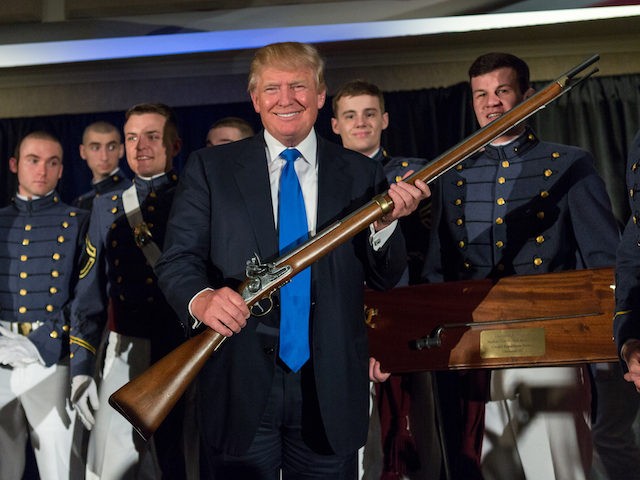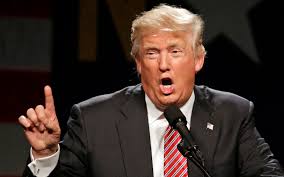In assessing what a Trump Presidency means for foreign policy, T.A. Frank of the excellent Vanity Fair vertical “Hive” suggests we apply a one-year test. If we’re not dead or dying by January 2018, if we’re not engaged in a needless and large-scale war or headed into such a conflict, the writer believes we’ll be okay for the term on the doom front. Oh, we’ll still get royally screwed financially and our democracy will be undermined at every turn, but perhaps our descent will be attended more by whimpering than banging, so to speak.
It’s not that I expect war with China despite all the Shanghai-rattling that’s already begun, but it’s likely that enough about the ideals of the United States, domestically and internationally, will be degraded that we’ll no longer exactly be America, the nation still standing even as it gradually falls.
Unlike many other pundits, Frank raises the “c” word–as in crazy–while analyzing Trump, which is an important term to remember when handicapping the future actions of the new President, who seems bonkers enough to believe he can run the world the way John Gotti ran Queens.
From Frank:
Several people in Trump’s circle seem to be eager to pursue conflict with Iran. That could cost countless American and Iranian lives and wreck his presidency fast. But that possibility is merely scary. Like other conflicts since the Second World War (with the exception of the attacks of 9/11), it would take place far from our shores. If we ramp up tensions enough with China or Russia, however, the war could come to us. That’s what’s truly terrifying about Trump—the possibility, not high (but higher than normal), that life as we know it will end. Trump would never deliberately court such an outcome, but he seems likelier than any president we’ve ever had to blunder into it.
Little fear of Trump’s foreign policy has to do with his overall assessments of the world stage—including the strategic value of joining forces with Russia against ISIS—many of which could be sound, in theory. But everything in foreign affairs is about how others interpret what you’re saying or doing on a deeper level. People still debate whether Saddam Hussein felt he’d gotten a green light to invade Kuwait from ambiguous statements made by U.S. ambassador April Glaspie, but they didn’t help. Similarly, most people agree that the decision by Jimmy Carter to admit the recently deposed shah of Iran for treatment in the United States in 1979 came across to Iranian revolutionaries as proof of conspiracy and led them to invade the U.S. embassy in Tehran and take its staff hostage. Given Trump’s habit of tweeting before thinking, we could get a couple of Glaspies and shahs a day.
Writing in The Week, Michael Brendan Dougherty suggests that Trump is already showing overconfidence in his ability to make deals with Russia and carelessness in his talk about nuclear weapons. All of this suggests he’ll “create uncertainty in the capitals of America’s allies and in Moscow about how the United States will respond to Russia’s ambiguous actions along the border,” writes Dougherty, and tempt Putin “to take advantage by offending Trump’s sense of national pride or sense of manhood.” And that’s to say nothing about Trump’s pokes at China over Taiwan. Little does he seem to realize that China’s young people are ferociously nationalistic, far less reluctant to hit the battlefield than their overlords in the capital, and that stirring the pot on Taiwan may set off forces not even Beijing can control. The combination of delicate world arrangements and Trump’s impulsivity could be deadly. The only reason I’m willing to bet a large sum that world war won’t happen is that, if it does, no one will be left to collect.•


